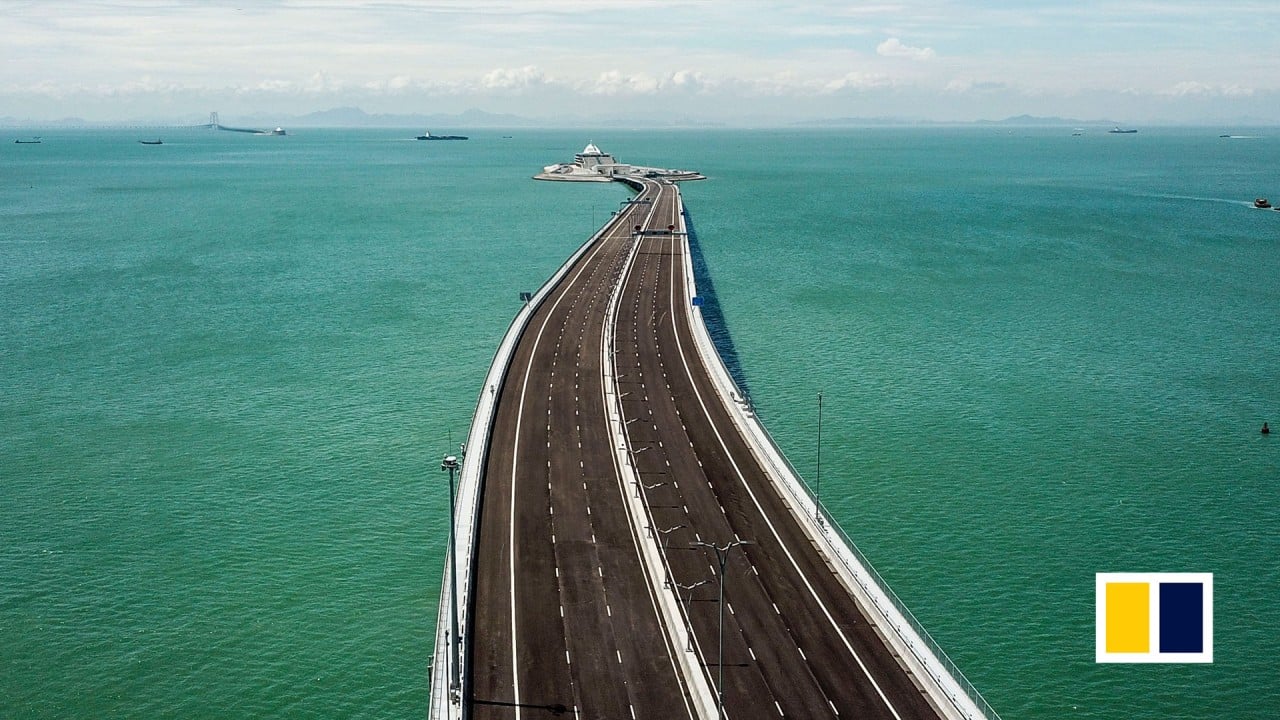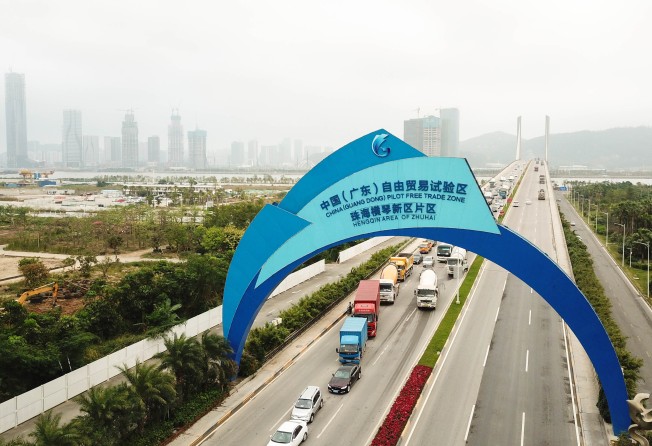
01:39
A tour of the Hong Kong–Zhuhai–Macau mega bridge

Tech start-ups are reaping the rewards of Zhuhai’s aggressive incentives to promote the city as a base for four major industries – semiconductors, artificial intelligence, biomedicine and new materials – under its “smart city” development plan.
One such beneficiary is Pachira Information Technology, a speech recognition firm founded by Macau businessman Ho Kuok-tou, which counts Japanese carmaker Toyota Motor, Bank of China and German financial services group Allianz among its clients.
“Beyond cash handouts, tax cuts and other subsidies, our business received a major boost as the government introduced more business opportunities and fundraising opportunities,” he said.
Ho, who formed his artificial intelligence (AI) start-up in 2009 in California’s Silicon Valley, decided to relocate to Zhuhai’s special economic zone in Hengqin last year, after winning a local scientific and technological entrepreneurship competition.

01:39
A tour of the Hong Kong–Zhuhai–Macau mega bridge
The award included 100 million yuan (US$15.25 million) of cash and 1,000 square metres of office with a sound lab and display centre hosting vehicles adopting its voice-control solutions. The space is rental-free for three years.
Pachira, which offers smart solutions such as voice-control systems on vehicles and auto-dialogue builders at private and government call centres, is aiming to get listed soon, after completing four rounds of financing, Ho said, without disclosing the figures.
The businessman credited its rapid growth to the local government’s efforts to turn Zhuhai into a model “smart city”. Zhuhai is the second-richest of nine Greater Bay Area cities in southern Guangdong province, and has spent 1.4 billion yuan since 2017 to promote innovations in four major industries. They are integrated circuit and chip design, big data and AI, biomedicine and medical equipment, and new materials.
Pachira has been able to showcase some of its AI services as some 30 smart-city projects have taken off to improve the quality of life for the city’s residents.
The company’s intelligent-speech bot, for example, has been adopted by the civil service hotlines to answer basic online enquiries such as addresses or operating hours of departments.
“The local authorities have come up with new initiatives on adopting cloud computing, AI, big data from time to time, and have been very enthusiastic in approaching us for technical consultations,” Ho said. “All these strengthened our resolve to settle here.”
Besides luring start-ups like Pachira, the city has also teamed up with some of the home-grown technology titans including Huawei, Tencent and ZTE to achieve the central government’s bay area vision of integrating internet, big data and AI in the real economy.
Huawei, for example, opened an innovation base in the city earlier in November to leverage its new server chip – called the Kunpeng processor – for the cloud computing ecosystem and to seek potential industrial and civil services applications.
Calvin Tse, a member of the Chinese People’s Political Consultative Conference in Jinwan district, said Zhuhai is developing the city by adapting its strengths based on its relatively small geography and population akin to Hong Kong, Shenzhen and Macau.
“The government is smart and knows the pros and cons when developing the smart city concept,” he said. “It can pursue cutting-edge technologies and innovations while avoiding sectors that rely on a large group of consumers such as retailing, or labour-intensive ones like manufacturing.”